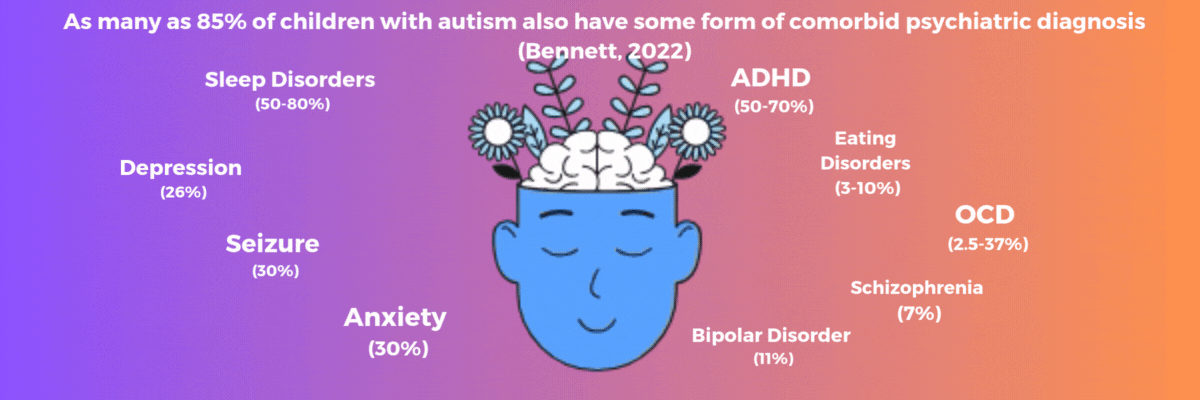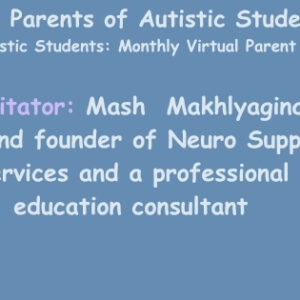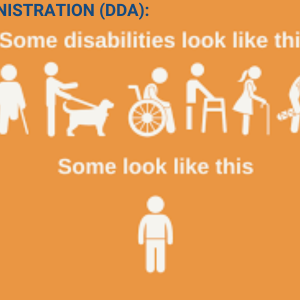
Psychiatry For Autism + Co-occurring Mental Disorders
When a person has a combination of two or more diagnoses or disabilities, they are considered to have co-occurring conditions. More than 75% of autistic children, youth, and adults will experience a co-occurring mental health condition. Differences in diagnostic practices, clinician and cultural biases, and structural barriers, make it difficult to access both diagnostic and treatment practices, with further disparities for those with higher support needs.
A variety of treatments exist for addressing co-occurring diagnoses. It is crucial to collaborate with professionals who possess a comprehensive understanding of the individual’s specific conditions. Just as each autistic individual presents uniquely, so too does the manifestation and management of co-occurring diagnoses. Effective interventions vary considerably from person to person. It is advisable to identify areas of difficulty, research available therapies and treatments, and subsequently select those most likely to yield positive outcomes. Examples of such therapies include, but are not limited to, facilitated play groups, Cognitive Behavioral Therapy (CBT), Applied Behavior Analysis (ABA), Dialectical Behavior Therapy (DBT), music therapy, and equine-assisted psychotherapy. Medication may also be considered in certain cases. Diligent research, coupled with consultation with a professional who demonstrates expertise in both the condition and the individual, is highly recommended. Regardless of age, understanding a co-occurring diagnosis and seeking appropriate treatment is always a viable option. This lunch and learn is focused on the role of medications in treating co-occurring conditions in autism.
Dr. Westover is an Associate Professor in the Department of Psychiatry at UT Southwestern Medical Center, who specializes in adult psychiatry, adult autism, and developmental disabilities in adulthood.
Dr. Westover earned his medical degree at Baylor College of Medicine. He completed both his residency in psychiatry a master’s degree in clinical sciences at UT Southwestern.
Board certified in psychiatry, he joined the UT Southwestern faculty in 2006 and is the Director of Adult Autism Services for the Department of Psychiatry and the Medical Director of the UT Southwestern Behavioral Health Clinic at the Richardson/Plano Campus. He is also a member of the UT Southwestern Psychiatric Clinical Leadership Committee and the Psychiatric Outpatient Leadership Committee. His research interests include adult autism. He has also investigated the effects of amphetamine and methamphetamine use and abuse on heart health, as well as outcomes related to public mental health systems. He has delivered numerous lectures and presentations and authored many academic articles related to his areas of expertise. He serves on the editorial board of the journal Substance Use & Misuse.





